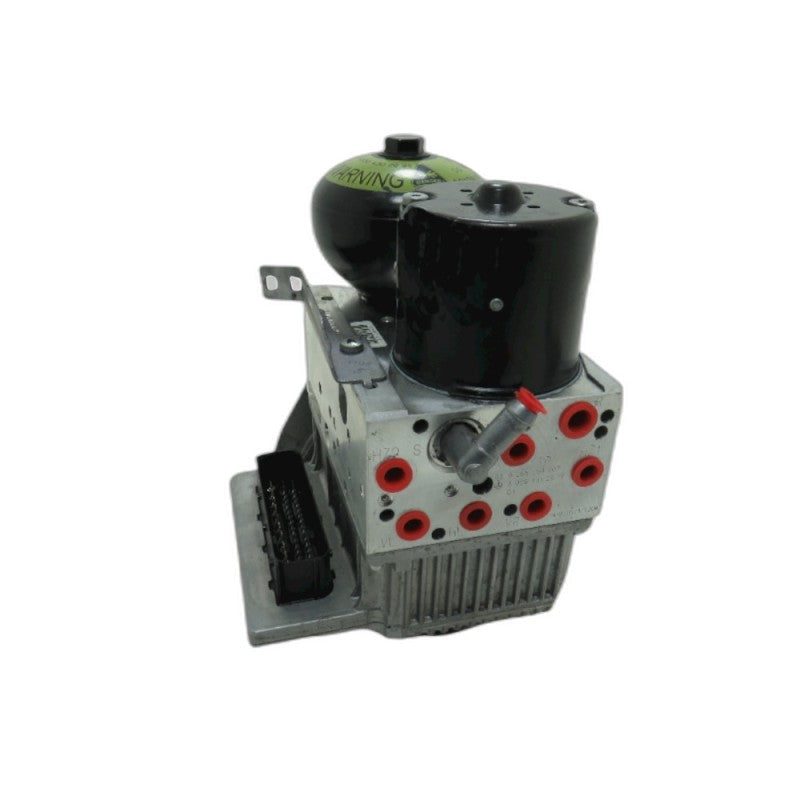A0084313812 | Genuine Mercedes Benz® Anti Lock ABS Hydraulic Pump
A0084313812 | Genuine Mercedes Benz® Anti Lock ABS Hydraulic Pump is backordered and will ship as soon as it is back in stock.
Couldn't load pickup availability
Need a quote?
Need a quote?
Contact us — we’ll send you a quick and accurate offer!
- help@forcetruckparts.com
- +1 (828) 233-5509
Return Within 30 Days
Return Within 30 Days
- The item can be returned within 30 days from the date of receipt.
- Not satisfied? Contact us by email or phone for return instructions or exchange
Shipping Terms
Shipping Terms
- Enjoy free shipping on orders over $100.
- Orders placed before 6:30 PM (EST) are shipped the same day.
Description:
An Anti-Lock Brake System A0084313812 (ABS) Hydraulic Pump—often just called the ABS pump—is a vital part of your car’s braking system. It works hand-in-hand with the ABS Pressure Modulator Valve to control brake fluid pressure during hard or emergency braking, helping prevent the wheels from locking up. The ABS hydraulic pump is responsible for restoring and maintaining brake fluid pressure in the braking system after the ABS modulator valve releases it during anti-lock operation.
Part Number: A0084313812
Condition: Remanufactured
Manufacture/Brand: Mercedes Benz
Related Part Numbers: A008-431-38-12, 0084313812, 008-431-38-12
Fits A0084313812 For Mercedes E-Class W211 (model years approx 2002-2009) especially with the SBC, Mercedes SL (R230), Mercedes CLS (C219)
Purpose of using A0084313812:
|
1. Maintain Brake Fluid Pressure
2. Restore Pressure After Modulation
3. Ensure Continuous ABS Operation
4. Prevent Brake Pedal Drop
5. Improve Vehicle Stability
6. Enable Steering During Emergency Braking
7. Enhance Stopping Distance on Slippery Roads
8. Support Other Vehicle Safety Systems Modern cars use the ABS pump for more than just anti-lock braking:
9. Maintain Equal Pressure Between Wheels
10. Reduce Wear on Brake Components
11. Provide Backup Pressure During Emergency Braking
|
Signs of a Bad Anti Lock ABS Hydraulic Pump A0084313812
|
1. ABS Warning Light On
2. Wheels Lock Up During Hard Braking
3. ABS Pump Running Constantly or Not at All
4. Brake Pedal Feels Hard or Unresponsive
5. Brake Pedal Feels Soft or Sinks to the Floor
6. Unusual Noises from the Engine Bay
7. Brake Fluid Leaks Near ABS Unit
8. Stored Diagnostic Trouble Codes (DTCs)
9. Reduced Stability or Traction Control Function
|
About the Manufacturer – Detroit Diesel:
Detroit Diesel is a leading American manufacturer of heavy-duty diesel engines, transmissions, and aftertreatment systems, primarily for the commercial trucking industry. Founded in 1938 and now a subsidiary of Daimler Truck North America, Detroit is best known for its DD Series engines — including the DD13, DD15, and DD16 — which power Freightliner and Western Star trucks.
Detroit also produces advanced technologies such as Detroit™ Axles, Detroit™ Connect telematics, and integrated powertrains, offering fleet operators improved fuel efficiency, uptime, and diagnostics. The company is headquartered in Detroit, Michigan, and continues to play a central role in modernizing emissions systems and performance standards in heavy-duty transportation.














